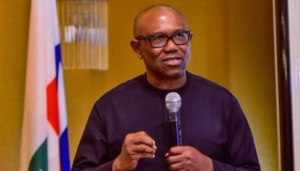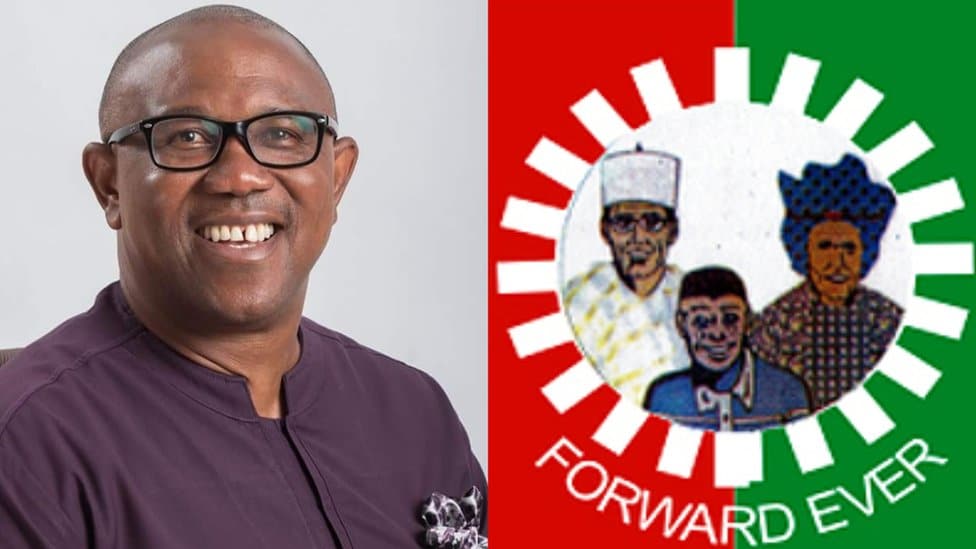CurrentReport Blog The Nigerian political landscape is currently abuzz with the fallout from the leadership crisis within the Labour Party (LP). Against a backdrop of internal strife, the Nigeria Labour Congress (NLC) has made a significant statement regarding the party’s 2023 presidential candidate, Peter Obi. Amid calls for change within LP’s top ranks, Obi finds himself at the center of a storm, with implications that could reshape the country’s political landscape.
In a recent declaration, Benson Upah, spokesperson for the NLC, emphasized the union’s stance on the LP’s leadership, particularly regarding Julius Abure’s tenure as national chairman.
Upah reiterated the NLC’s refusal to acknowledge Abure’s leadership, labeling it as “illegal” and lacking legitimacy. This firm stance underscores the NLC’s commitment to instigating change within the party’s hierarchy, signaling a turbulent period ahead for LP’s leadership.

The dissatisfaction within LP’s ranks extends beyond the NLC, with retired workers under the banner of the Lagos Assembly of Labour Veterans and Trade Unionists joining the chorus for change. Demands for the resignation of both Julius Abure and NLC President, Joe Ajaero, highlight the depth of discontent within the party’s structure.
The contentious leadership struggle has fueled tensions and raised questions about the party’s ability to unify ahead of crucial political milestones.
At the heart of the turmoil lies Peter Obi, LP’s presidential candidate for the 2023 elections. Obi’s frustrations with the party’s leadership, particularly concerning the handling of the national convention, have escalated in recent days. His absence from the convention and subsequent expressions of disappointment underscore growing divisions within LP’s ranks. Speculations regarding Obi’s potential defection to another political platform have only intensified, casting a shadow over LP’s prospects for the upcoming elections.
Despite the uncertainty surrounding Obi’s allegiance, the NLC has adopted a pragmatic approach. Upah emphasized that Obi retains the freedom to determine his political trajectory, including the possibility of leaving LP. The NLC recognizes Obi as an asset, acknowledging his contributions while affirming their commitment to respecting his decision. This stance reflects a nuanced understanding of the complex dynamics at play, balancing loyalty to LP with recognition of Obi’s agency in shaping his political future.












